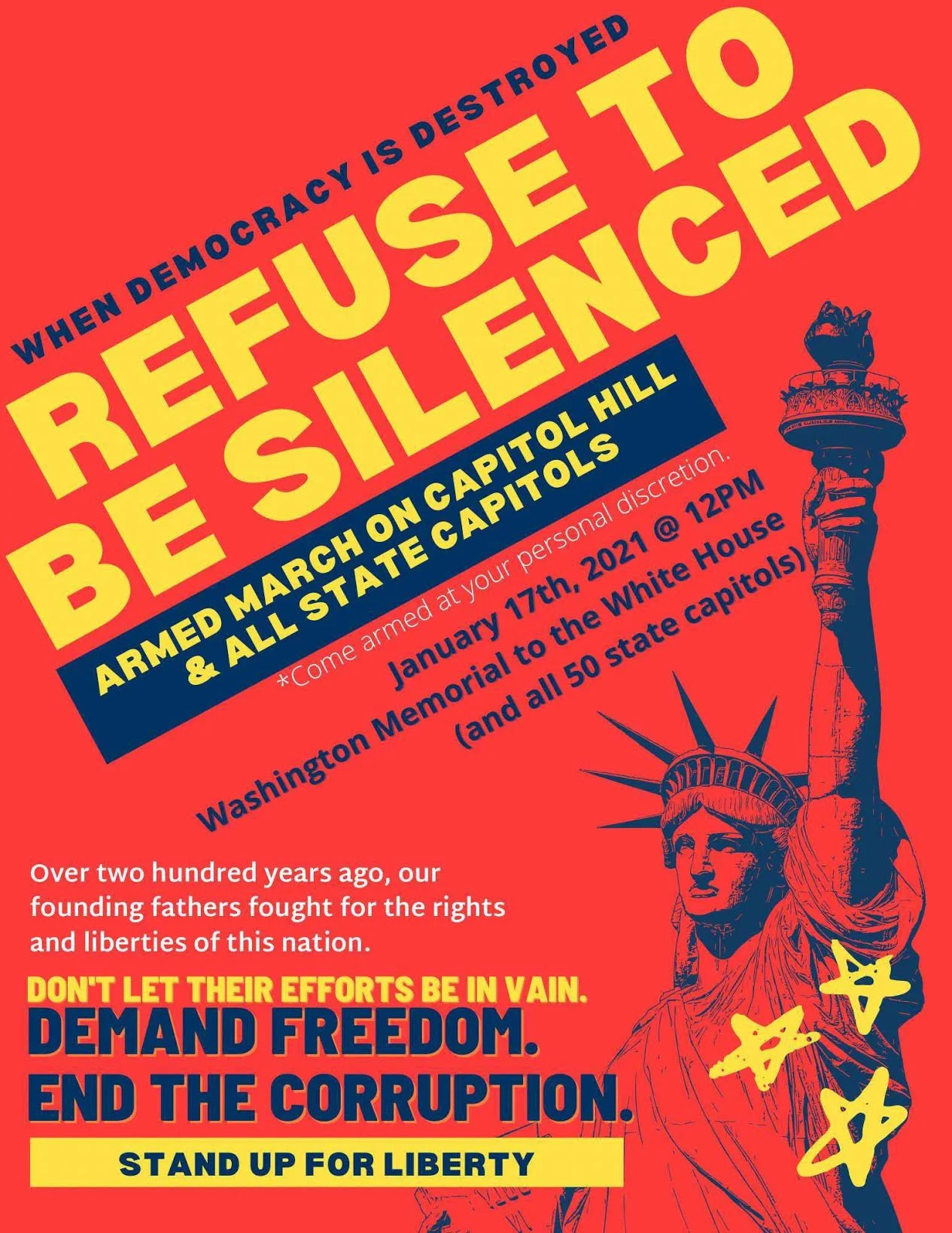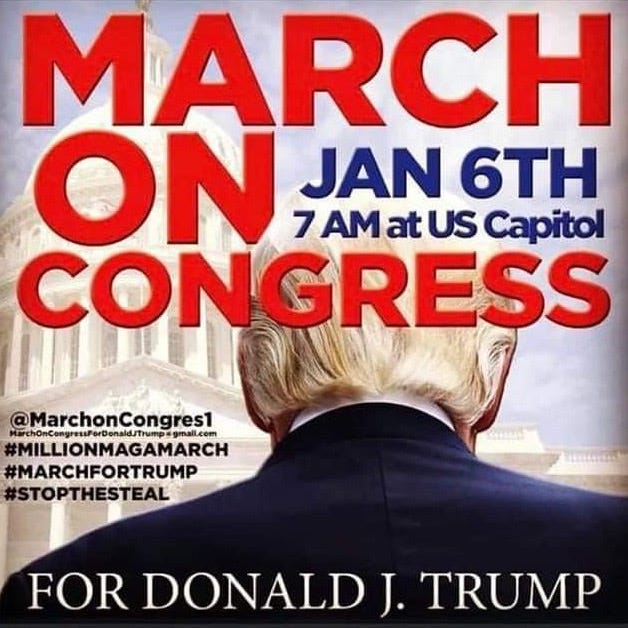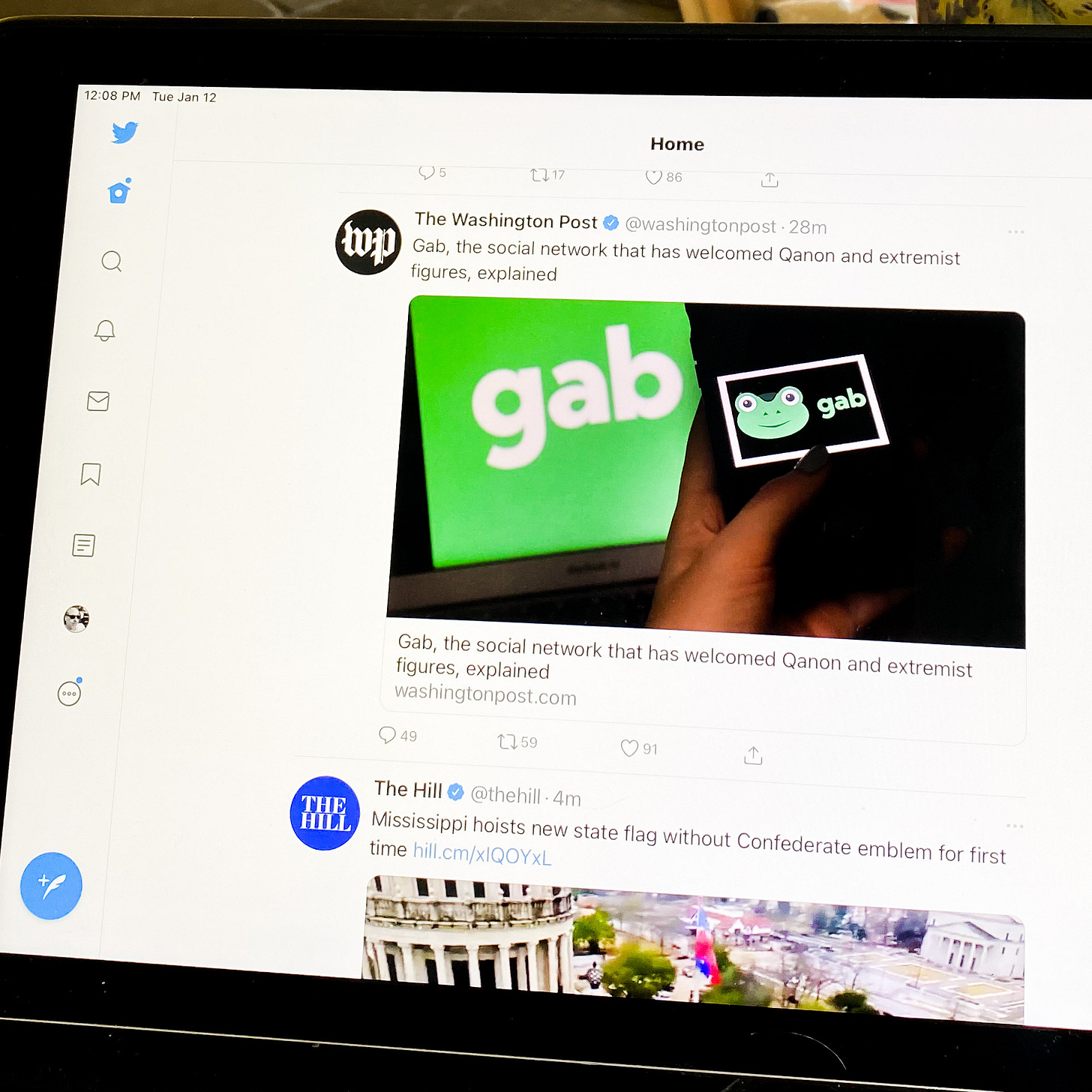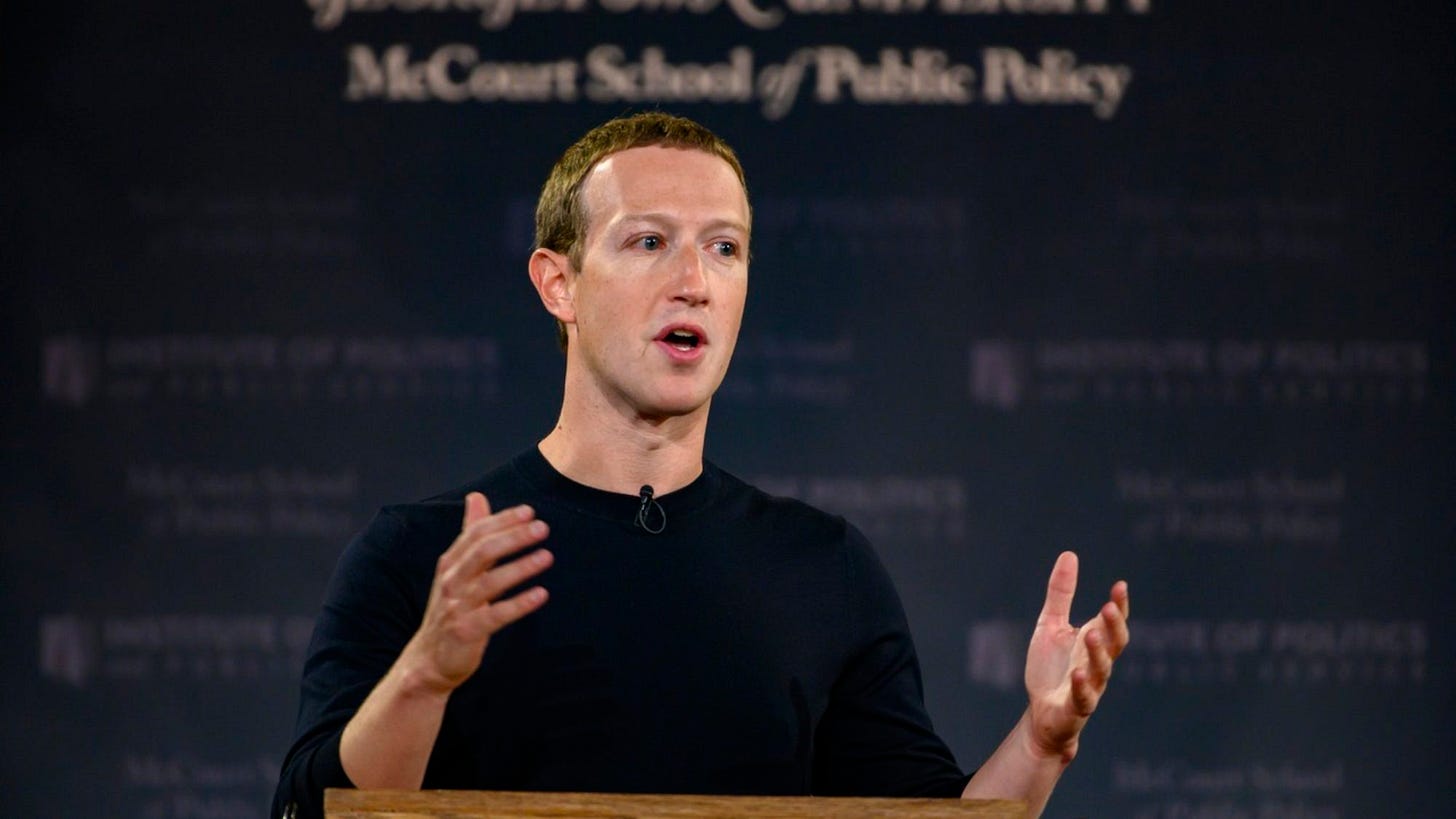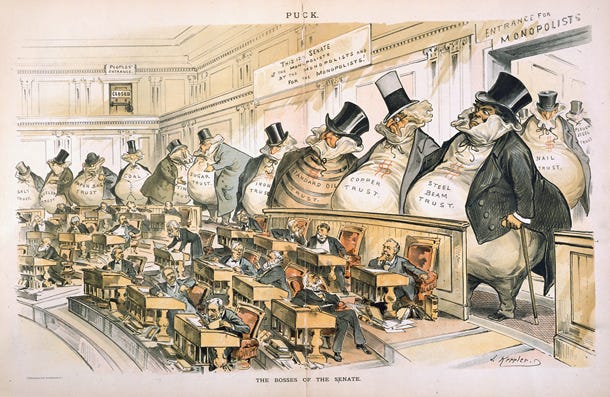Platform Wars, Part II
I Wrote Yesterday that Banning Trump from Social Media Feels Good, But Could Boomerang on Us. I Expand on This Today, Focusing on Media/Tech Consolidation and Concentrations of Power.
We are at a fraught moment. An organized riot shut down the seat of American government last week. What happened Wednesday was an attempted insurrection. A failed coup. More is in store. // Armed protests are rumored to be planned in all 50 state capitals, according to the FBI, leading up to the Jan. 20 inauguration of Joe Biden as president. // Armed. Angry. Donald Trump has stoked this ire. Sparked the combustible mixture of hatred and resentment into flame. // Six dead. Two Capitol Hill cops. One at the hands of rioters. The other by suicide. An audience watching from home. Stunned. // Lawmakers under their desks. Like they teach kids if a shooter enters a school. Under the desk. Out of the way. // Still they came. Carrying weapons and zip ties. A planned insurrection. Organized. Funded through social media. //
*
This was unprecedented. The scale of the violence shocking. // A video circulates of a police officer being dragged down the Capitol steps. Protesters call for the hanging of the vice president. Jailing of the speaker of the house. // On The Verge, Russell Brandom writes that we need to “acknowledge the scale of the destruction” that led social media to respond. To ban the president. To shut down Parler, the conservative Twitter alternative. // “The moderation actions of the past week came in response to an immediate deadly attack on the seat of government and an ongoing threat of seditious violence.” This is proportional, Brandom writes. It is “an emergency situation” that “calls for decisive action.” // The facts on the ground demand this, he says. I’m sympathetic. But still ambivalent. Still worry that major corporate players have gained too much control over public and private discourse. Perhaps I’m naive. // A friend writes that he is “not at all sure such a thing as ‘corporate censorship’ exists in a market economy.” And he’s right when he says that no one’s freedom is being taken away. // Trump may not have Twitter, but he has the Rose Garden podium. The Oval Office. At least for the next week or so. //
*
Social media companies “set out to be neutral platforms,” The Economist wrote in October. But they are not. They pretend to be benign. Hands-off. Neutral. They provide space. Infrastructure. Encourage use. Trade free access for user data and content. // “(T)hey have become more active at algorithmically ranking the content that users upload.” They monetize. Moderate. Block “the undesirable stuff.” Makes them “more like publishers.” // But they are not just publishers. They are both imperfect public squares and self-publishing platforms. //
*
A privatized public sphere. That’s what social media has created. Why Zuckerberg has compared Facebook to a “town square” (https://www.economist.com/briefing/2020/10/22/social-medias-struggle-with-self-censorship). It is and it isn’t. But we are transferring to private hands the responsibility for managing public dialogue. // The First Amendment prevents government from acting. Government keeps its hands off. Clean. But pressures private companies. Hauls them before Congress. Uses the bully pulpit. Does nothing. Creates a vacuum. //
*
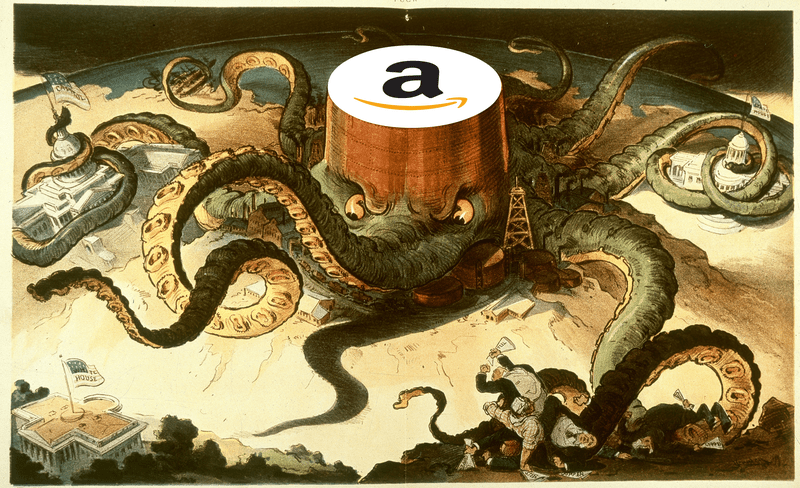
The issue is complicated. Difficult. Twitter and Facebook were within their rights to do what they did. There is no way to prevent it. We can’t, shouldn’t tell firms they have to host specific content. That’s just another way of violating speech freedoms. // But there is danger in leaving these decisions to the market. Our market economy is not so open. Not so free as we pretend. Consolidation has squeezed smaller players out. Especially in the tech realm, where the big firms gobble up the small ones. Like the cliched poster of the food chain that used to grace the walls of classrooms. // They are behemoths. They control the platforms. Own the infrastructure. The browsers. The internet providers. A half dozen firms. No more than a dozen. They “control the mobile ecosystem and can shut down an app like Parler,” writes the conservative Daniel Greenfield. // This means they control the audience. Can manage its size. It’s scope. This, Greenfield says, “ghettoizes conservatives.” // This makes partisan what should not be partisan. What is a larger access issue. One that is more likely to place marginalized groups in marginalized positions going forward. // The issue is consolidation. That “the internet is controlled by an increasingly small interconnected network of companies who can act in concert to suppress anyone or anything they don’t like.” //
*
Concentrations of power. Of reach. Of control. Imagine 10 private firms controlling all traffic on the nation’s roadways. // Consolidation has made alternatives rare. Is making recourse for outsider voices more and more difficult. This is not about insurrection. Calls to violence have long been illegal. My concern is not about that, but about access. For the politically and culturally marginalized. // We have to take that seriously. The answer to this is to ensure that alternatives exist. To attack the consolidation. Fragment the massive firms. We’ve done it before, with big oil and Ma Bell. But we’ve moved away from anti-trust actions. Redefined monopolistic practices as being about consumers. Made it harder to see that corporate consolidation has real consequences for democratic culture. // I’m a socialist. I believe capitalism creates and exacerbates power imbalances. Government is a necessary evil. The only tool we have to level the field against the powerful corporations that control nearly all aspects of our lives. // We need a drastic remake of the economic structure. That is not going to happen. Not now. But we can’t ignore the damage our economic system has done. That its intertwining with race does everyday. //
*
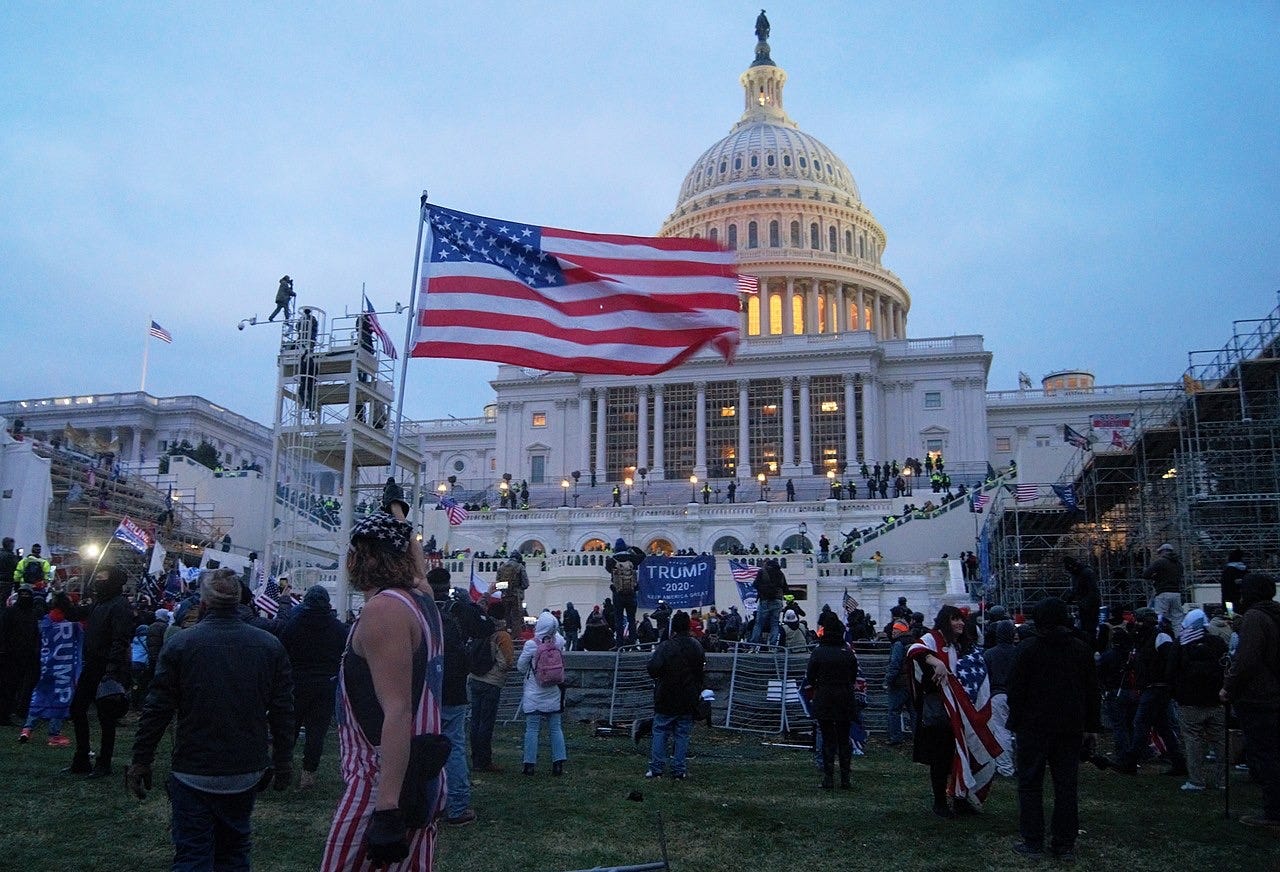
Trump took advantage of these twin evils. Stoked racism and resentment. Pointed blame. Set the mob loose. Incited violence. His soapbox has been taken away. So have the megaphones used by the violent hate groups who use it to organize the violence. // I’m fine with that. What worries me, though, is that we’re leaving these calls to the private sector without understanding the consequences for the rest of our voices. //


